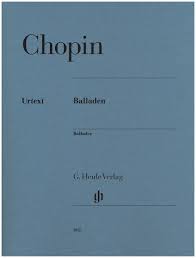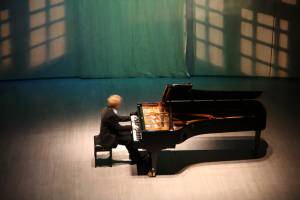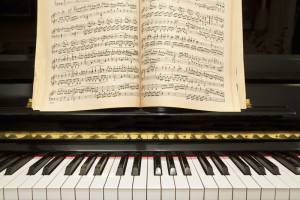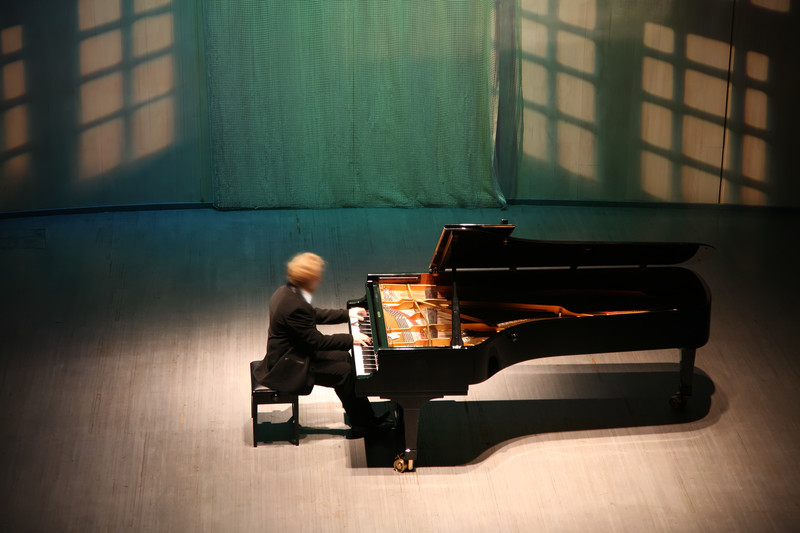Hello everyone,
 In my role as pianist, the playing work I have enjoyed the most is as chamber musician collaborating with other musicians and singers. As a student at music college I did learn much of the core solo piano repertoire, but I have to say that it wasn’t for me the most enjoyable part of music making. Don’t get me wrong, the piano repertoire is the most amazing body of work and learning Bach Partitas, Beethoven sonatas, Brahms Intermezzi Chopin Nocturnes etc is a real privilege. The challenges of working with others for me was and remains more exciting.
In my role as pianist, the playing work I have enjoyed the most is as chamber musician collaborating with other musicians and singers. As a student at music college I did learn much of the core solo piano repertoire, but I have to say that it wasn’t for me the most enjoyable part of music making. Don’t get me wrong, the piano repertoire is the most amazing body of work and learning Bach Partitas, Beethoven sonatas, Brahms Intermezzi Chopin Nocturnes etc is a real privilege. The challenges of working with others for me was and remains more exciting.
Having said that I have given piano recitals which have been wonderful challenges. What has sparked this blog? I have been asked to give a piano recital in late 2018 and already I am thinking of my programme and also thinking of strategies regarding memorizing my pieces.
This aspect of piano playing is I have to confess my weak point. It does seem to be when it comes to  discussions about memorization and whether musicians ought to perform from memory or not, pianists are often at the centre of the debate. I’m not sure whether it is more difficult for pianists or not, but it is something I do find a little challenging. Is it down to quality of practice, regularity of learning and performing pieces from memory or are there other factors at play? It seems that there are factors affecting performances that may work against pianists.
discussions about memorization and whether musicians ought to perform from memory or not, pianists are often at the centre of the debate. I’m not sure whether it is more difficult for pianists or not, but it is something I do find a little challenging. Is it down to quality of practice, regularity of learning and performing pieces from memory or are there other factors at play? It seems that there are factors affecting performances that may work against pianists.
Most discussion on memorization focuses more on exploring various methods of how to memorize rather than on the retrieval process. What affects recall?
From what I have been reading recently, we have better recall of information if we are tested on that material in the same environment where it was learned. It seems as though recalling information is more difficult in a different environment, but it is unclear what elements of the environment matter.
 One problem facing pianists is that they always end up performing on instruments that are not their own beloved and very familiar piano. Of course pianos all have 88 keys and set in the same pattern, however the touch and sound can be really very different. Studies have shown that practicing on one piano, and performing on a different piano does increase the likelihood of memory slips, even in the same environment.
One problem facing pianists is that they always end up performing on instruments that are not their own beloved and very familiar piano. Of course pianos all have 88 keys and set in the same pattern, however the touch and sound can be really very different. Studies have shown that practicing on one piano, and performing on a different piano does increase the likelihood of memory slips, even in the same environment.
To get around this could be to perhaps practice in as many places as possible and especially for pianists, run through the programme on other pianos and to different groups of friends and family.
 So far I have focused on recall but how to get all those thousands of notes in the memory in the first place? Well, here’s a list which I hope will be of some help.
So far I have focused on recall but how to get all those thousands of notes in the memory in the first place? Well, here’s a list which I hope will be of some help.
- Quite simply, practice the music so that the piece is thoroughly known. It’s only possible to memorize what has been learnt.
- Knowing the phrasing will give you a better understanding of the music which will then be easier to divide up for memorizing.
- Keep the length of each portion being worked on at a manageable length, depending on how well your memory works.
- Pick out a phrase, play several times and then try to play eyes closed. This is a fun challenge and helps to really focus on physical as well as aural memory.
- Then look at the music to find what went wrong, then try again eyes closed. Keep repeating until reliability has been achieved.

- Once memorized do continue to look at the music from time to time, it will help avoid mistakes creeping in.
- Move on to another chunk and repeat the process. Do also recap on the previous chunk and then link them together and play several times in a row.
- It may also help to start with the last phrase at the end of a piece and work back towards the beginning phrase by phrase.
- Sing the music you’re trying to memorize.
- Think through the music you’re playing away from the piano.
There are many more dozens of tips and practice techniques I could suggest for memorizing music but I hope that this little list is of help and interest to you to get started. Now off to the piano and get learning!
Best wishes and happy playing.



Add Comment